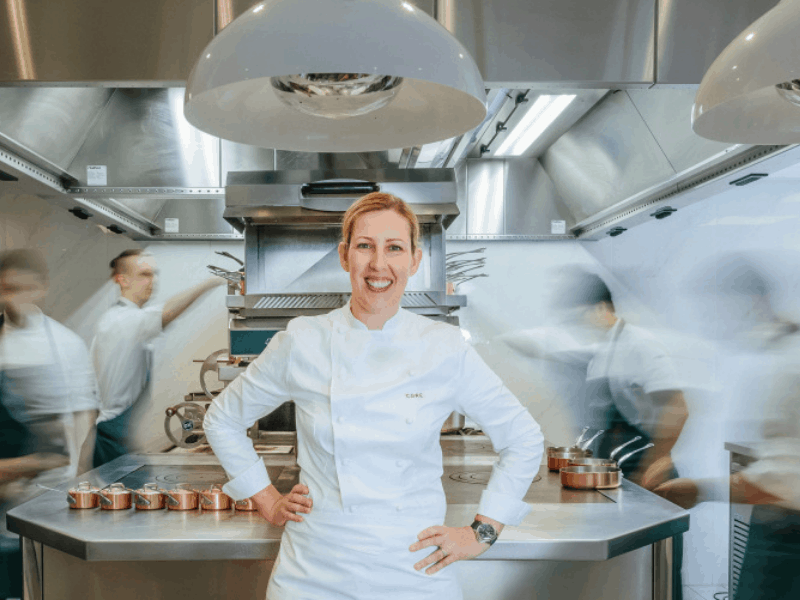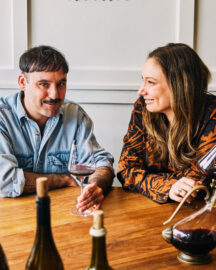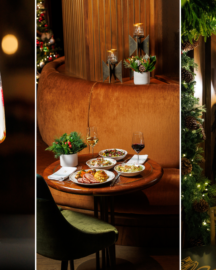Closing the Restaurant Industry Gender Gap with Clare Smyth

In the male-dominated restaurant industry (only four of the world’s 50 best restaurants are run by women), Clare Smyth serves as a shining example for aspiring female chefs.
After working as head chef of Restaurant Gordon Ramsay, she became the first and only female chef to run a restaurant with three Michelin-stars in the UK. This past June, the World’s 50 Best Restaurants recognized Smyth as the World’s Best Female Chef for her work at Core in West London. This fall, Clare Smyth is a judge on the hotly anticipated new Netflix cooking competition show The Final Table, featuring chef Darren Maclean of Shokunin in Calgary.
But those accomplishments aren’t enough for Smyth. During a keynote at this year’s MAD Symposium, she described her efforts to create a safe and inclusive kitchen environment, responding to the #MeToo movement and accepting the title of World’s Best Female Chef. We spoke to Smyth at MAD to learn more.
C100B: The “World’s Best Female Chef” award has been criticized for widening the gender disparity gap rather than closing it. How did you feel about accepting the title?
CS: I’ve dealt with the title of “female chef” for most of my life and it used to really wind me up. But someone once said to me that if I didn’t accept the platform, then I wasn’t ever going to change anything. We have an issue with not having enough women in restaurants, so if I can use the platform to tell my story and inspire other women then that’s what I want to do.
C100B: The #MeToo movement has shed light on the abuse and harassment that women often deal with in kitchens—how has it affected you as a manager and chef?
CS: I’m glad that we’re having these conversations and I feel a personal responsibility to create an inclusive working environment everyday, massively. We train our staff to call out harassment when they see it. You have to let your staff know that they can come to you if something happens. Standing up for the young women in my kitchen is something I feel very passionate about.
C100B: What else can we do to bridge the gap and create more equality in the restaurant industry?
CS: We have to keep pushing and fighting for what’s right. It’s amazing that we can all gather here at MAD to have these important discussions, and we need to continue having them when we go home. This is how change starts, and eventually the tide will turn.
Part three of a three-part series from Canada’s 100 Best contributor Claudia McNeilly, who was on location at MAD6.
Photo: Courtesy Core by Clare Smyth
Highlights of Mad 6:





